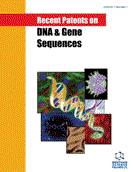Abstract
All living organisms use protein to perform essential functions. However, environmental factors induce stress and relevant proteins that may not function properly. Inappropriate misfolding and aggregation are major issues in functioning of a protein and this may impact critical cellular processes implicated in diseases. To overcome this issue, organisms have evolved a system based on the use of Heat Shock Proteins (Hsps) or stress proteins. This diverse set of proteins acts like “chaperones” to other proteins within the cell including the maintenance of key proteins in their native state and in their right cellular compartment. These protein aid in folding and cellular movement, and also in export of waste cellular products and presentation of proteins and peptides to the immune system. Recent studies have shown new insights on the physiological roles of Hsps in different metabolic pathways. Hsps play a key role for many proteins not only in adverse conditions but also in the ambient environment as well. Since altered functions of these proteins cause several diseases, a number of drug developments are underway to target Hsps. This review focuses on recent patents in this particular area.
Keywords: Hsp70, protein complexes, protein folding, aggregation, prions, neurodegenerative diseases
 3
3











